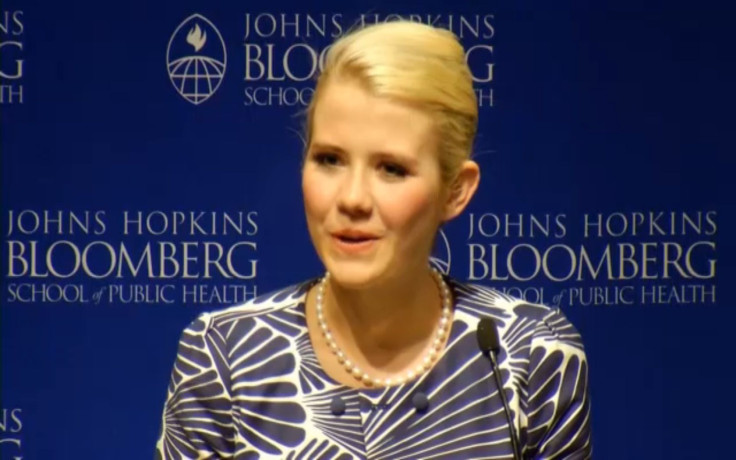Elizabeth Smart: Abstinence-Only Sex Education Devalues Rape Victims

Elizabeth Smart, now an outspoken advocate for missing children and sexual abuse victims, explained last week that abstinence-only sex education was part of the reason why she didn't run away during her nine-month abduction in 2003.
The Washington Post reported that in a panel on child-sex trafficking at Johns Hopkins University, Smart blamed the conservative sex education of her childhood for contributing to her feelings of devaluation after suffering rape and sexual assault at the hands of her captors.
"It's feelings of self-worth," said Smart. "It's feelings of 'who would ever want me now?' I'm worthless. That is what it was for me the first time I was raped."
Smart was 14 years old when she was kidnapped from her bedroom in Salt Lake City in June 2002. Her abduction triggered a massive search, and she was only found when bystanders recognized her walking down the street with her captor 18 miles from home.
She explained to the panel that her education, steeped in religious Mormon culture, had highlighted sex as something that only happened legitimately within the sacrament of marriage. As a result, she was "crushed" after her first rape, feeling "so dirty and so filthy" that she didn't see the point of running away.
"I mean, you can imagine the most special thing being taken away from you — not that that was your only value in life — but something that de-valued you? Can you imagine going back into a society where you're no longer valued? Where you're no longer as good as everybody else?"
Smart recalled a teacher in school who promoted the abstinence-only approach to sex education, encouraging students to imagine themselves as sticks of gum. The teacher compared having sex to being chewed, such that someone who repeatedly engages in sexual activity outside of marriage becomes an "old piece of gum," unwanted by anyone for lack of freshness.
"That's terrible, nobody should ever say that," said Smart. "But for me I thought 'oh my gosh, I'm that chewed up piece of gum. Nobody re-chews a piece of gum. You throw it away.'"
"And that's how easy it is to feel like you no longer have worth, you no longer have value. Why would it even be worth screaming out?"
Smart's comments have triggered other members of the Mormon community to call for a reevaluation of church policies about the virtue of women who have been raped, and add yet another angle to the ongoing cultural debate about the value of abstinence-only sex education policies.
Many studies have criticized abstinence-only education programs for withholding crucial information that could help young Americans avoid unwanted pregnancies and sexually-transmitted infections (STI).
A study by the Advocates for Youth estimated that the federal government has spent over $1.5 billion since 1997 on abstinence-only sex education programs, despite mounting evidence that such programs have no beneficial effect on teenagers' sexual behavior.
Particularly alarming statistics from the Centers for Disease Control and Prevention (CDC) indicated that as recently as 2010, teenage pregnancy rates were significantly higher in American states that do not require comprehensive sex education in schools.
Furthermore, research indicates that abstinence-only sex education does not actually lead to abstinent behavior among teens, and may actually lead them to forgo contraception and put themselves at risk of pregnancy and STIs.
The Obama administration has generally favored evidence-based curriculums for pregnancy prevention, and though most of the recently funded programs include information about contraception, some abstinence-only programs have made the cut.
Elizabeth Smart's testimony adds further context to criticism of abstinence-only education. In addition to being ineffective at discouraging sexual activity among teenagers, it can actively harm the self-worth of rape and sexual assault victims.
"The best thing we can do is educate young people as young as we can reach them," Smart told the audience toward the end of her panel speech. Anyone can become a sexual assault victim, she said, and young people should not be educated in ways that make them suffer unduly as she did.
"If you're given choices, if you're given skills, if you're given permission to fight back," then education will have been successful.
"You have value, you always will have value, and nothing can change that."
A video of Elizabeth Smart's speech is available at Fox45 News.
Published by Medicaldaily.com



























